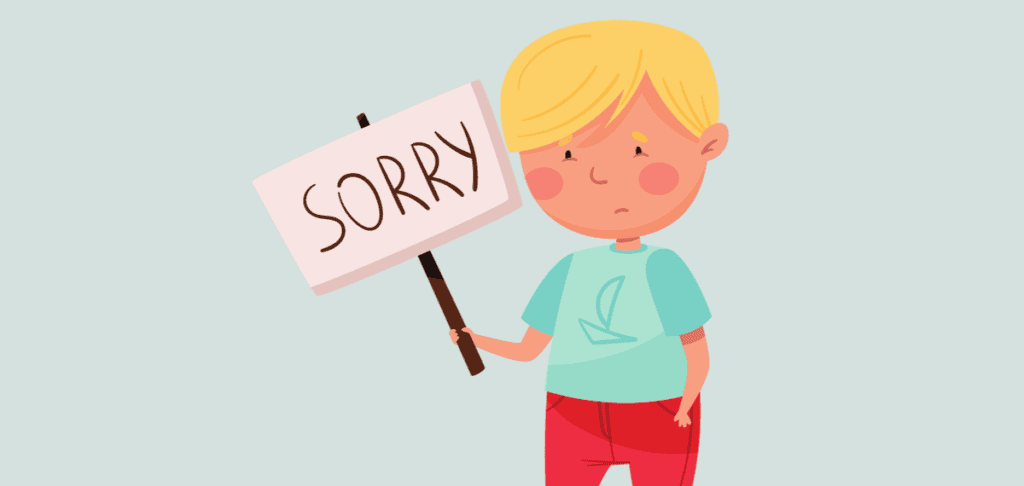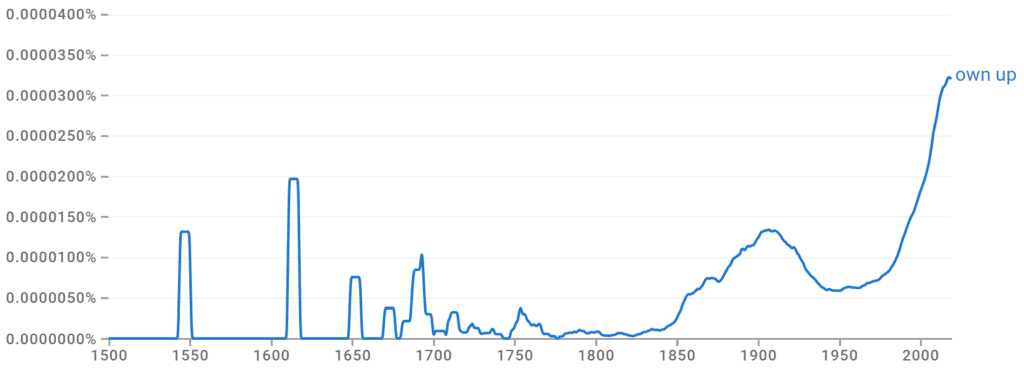Own up is an idiom that means to admit or confess to something, especially when you’ve done something wrong or made a mistake. Imagine a kid sneaking the last cookie before dinner and then fessing up when their mom finds the empty jar. That’s owning up to what they did.
Idioms are phrases where the words together have a different meaning than their individual definitions. They are what we use to elevate our conversations from simple and boring to fun and relatable. But they’re only effective when used in the right context. So, I’ll explain this idiom’s meaning, talk about its origin, and then show you how to really use it in a sentence.
What Does Own Up to Your Mistakes Mean?

When you own up to your mistakes, you’re acknowledging your wrongdoings instead of shying away from them or blaming others. It’s the adult version of admitting you ate that last cookie, and it’s an important skill for personal growth and healthy relationships.
Origin and Etymology of the Saying Own Up

The use of the idiom own up goes back to the early 16th century. Some sources say that it likely evolved from the more formal phrase to own up to, which also means to admit or acknowledge something. With time, it got shortened to its modern, snappier form.
Synonyms for Own Up
Need more ways to say own up? Here’s a list of alternatives to use:
- Admit
- Confess
- Acknowledge
- Fess up
- Come clean
Using Own Up in Sentence Examples

Seeing idioms like this in a full sentence can give you a better context of how it should be used.
- I have to own up; I was the one who broke the vase and tried to fix it with glue.
- Will you ever own up to your mistakes, Chad?
- It’s time for you to own up and apologize, or you’ll carry this guilt with you forever.
- She owned up to taking the last slice of pizza when she realized her son wanted another.
- Own up now, and you’ll feel a lot better about the whole situation after.
- Darren owned up to lying on his resume and exaggerating his skills in the field.
- If you don’t own up to what you did out there, the truth will come out eventually.
- The players owned up to cheating in the basketball game, and a rematch was called.
- We should all own up to others when we’re wrong; it builds character.
- She finally owned up, admitting she’d been the mystery prankster at school all along.
Time to Fess Up
Now you know what own up means, so there are no more excuses for dodging this phrase. Idioms bring depth and color to our conversations, and knowing how to use them correctly is owning up to your role as a proficient English speaker. Go on, admit it—you’re excited to use own up in your next conversation! Explore more fun idioms like this one right on our site.
